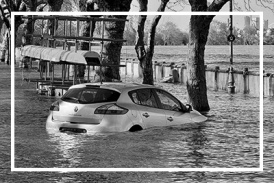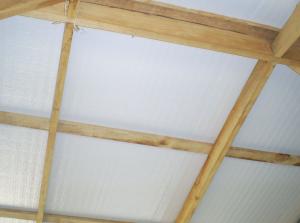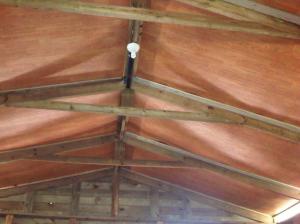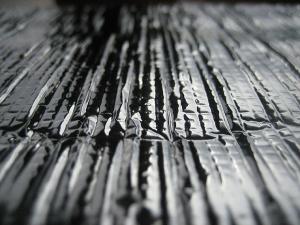Insulation4Less Highlights the Performance and Versatility of Reflective Insulation in Modern Building Applications
Combines Insulation + Radiant Barrier + Vapor Barrier + Air Barrier all in One Product.
HOUSTON, TX, UNITED STATES, April 12, 2025 /EINPresswire.com/ -- Insulation4Less, a leading supplier of energy-efficient insulation solutions, is spotlighting reflective insulation as a practical and versatile alternative in today's building market. As the construction industry evolves to meet growing energy efficiency standards, reflective insulation continues to gain relevance due to its distinct thermal performance in specific use cases.
Reflective insulation, often made of layers of foil bonded to other materials such as polyethylene foam or plastic bubbles, functions by reducing radiant heat transfer—unlike traditional mass insulation, which primarily slows down conductive heat. This makes it particularly effective in hot climates and applications where radiant heat is a significant concern, such as roofs, metal buildings, or pole barns.
One of the most frequently asked questions regarding reflective insulation pertains to its R-value, a measure traditionally used to indicate thermal resistance. While reflective insulation does not have a fixed R-value in the same way fiberglass does, its performance depends heavily on the presence of air space. Notably, the R-value performance of reflective insulation is not affected by humidity, unlike some conventional insulation types whose effectiveness can degrade in moist conditions. This stability in performance makes reflective insulation particularly well-suited for use in high-humidity environments like livestock and agricultural buildings.
Importantly, reflective insulation is also characterized by its low emissivity, typically around 0.03, which means it reflects up to 97% of radiant heat. This property is particularly useful in reducing cooling loads during warmer months.
Unlike fiberglass or foam board products, reflective insulation is lightweight, easy to handle, and does not require protective gear for installation. It also resists mold, mildew, and moisture absorption, making it suitable for humid environments or places prone to condensation issues like metal buildings and pole barns.
Reflective insulation is commonly used in a variety of residential and commercial applications, including:
Metal Buildings
Pole Barns
Roofs
Walls
Crawl spaces
Ceilings
Attics
Garages
Temporary structures
HVAC ducting
Post-frame buildings
Metal roofing systems
Although reflective insulation is not a one-size-fits-all solution and should be evaluated against project-specific needs, it offers significant advantages in scenarios where radiant heat control is paramount. When integrated properly into a building envelope, it can contribute meaningfully to overall thermal performance and occupant comfort.
For more information about reflective insulation products and performance details, visit www.insulation4less.com.
Jonathan Barber
Insulation4Less.com Inc
+1 281-356-0798
email us here
Visit us on social media:
Facebook
X
YouTube
Legal Disclaimer:
EIN Presswire provides this news content "as is" without warranty of any kind. We do not accept any responsibility or liability for the accuracy, content, images, videos, licenses, completeness, legality, or reliability of the information contained in this article. If you have any complaints or copyright issues related to this article, kindly contact the author above.
leagend Unveils Customizable Lead‑Acid Charger ODM Solution to Enhance Gardening Tool Battery Lifespan and Efficiency
Dana L. Cox to Appear on Fintech.TV to Discuss How Business Acquisition Can Close the Wealth Gap for Women
A Legacy of Love, Imagination, and Hope Comes to Life in 'P. Green Dragon' by Julia Meade and Jasi Meade
Więcej ważnych informacji
 Jedynka Newserii
Jedynka Newserii

 Jedynka Newserii
Jedynka Newserii

Ochrona środowiska

Kraje dotknięte powodzią z 2024 roku z dodatkowym wsparciem finansowym. Europosłowie wzywają do budowy w UE lepszego systemu reagowania na kryzysy
W lipcu Parlament Europejski przyjął wniosek o uruchomienie 280,7 mln euro z Funduszu Solidarności UE na wsparcie sześciu krajów dotkniętych niszczycielskimi powodziami w 2024 roku. Polska otrzyma z tego 76 mln euro, a środki mają zostać przeznaczone na naprawę infrastruktury czy miejsc dziedzictwa kulturowego. Nastroje polskich europosłów związane z funduszem są podzielone m.in. w kwestii tempa unijnej interwencji oraz związanej z nią biurokracji. Ich zdaniem w UE potrzebny jest lepszy system reagowania na sytuacje kryzysowe.
Handel
Nestlé w Polsce podsumowuje wpływ na krajową gospodarkę. Firma wygenerowała 0,6 proc. polskiego PKB [DEPESZA]

Działalność Nestlé w Polsce wsparła utrzymanie 45,2 tys. miejsc pracy i wygenerowała 20,1 mld zł wartości dodanej dla krajowej gospodarki. Firma przyczyniła się do zasilenia budżetu państwa kwotą 1,7 mld zł – wynika z „Raportu Wpływu Nestlé” w Polsce przygotowanego przez PwC na podstawie danych za 2023 rok.
Polityka
M. Kobosko: Surowce dziś rządzą światem i zdecydują o tym, kto wygra w XXI wieku. Zasoby Grenlandii w centrum zainteresowania

Duńska prezydencja w Radzie Unii Europejskiej rozpoczęła się 1 lipca pod hasłem „Silna Europa w zmieniającym się świecie”. Według zapowiedzi ma się ona skupiać m.in. na bezpieczeństwie militarnym i zielonej transformacji. Dla obu tych aspektów istotna jest kwestia niezależności w dostępie do surowców krytycznych. W tym kontekście coraz więcej mówi się o Grenlandii, autonomicznym terytorium zależnym Danii, bogatym w surowce naturalne i pierwiastki ziem rzadkich. Z tego właśnie powodu wyspa znalazła się w polu zainteresowania Donalda Trumpa.
Partner serwisu
Szkolenia

Akademia Newserii
Akademia Newserii to projekt, w ramach którego najlepsi polscy dziennikarze biznesowi, giełdowi oraz lifestylowi, a także szkoleniowcy z wieloletnim doświadczeniem dzielą się swoją wiedzą nt. pracy z mediami.



![Nestlé w Polsce podsumowuje wpływ na krajową gospodarkę. Firma wygenerowała 0,6 proc. polskiego PKB [DEPESZA]](https://www.newseria.pl/files/1097841585/fabryka-nesquik_1,w_85,r_png,_small.png)






.gif)

 |
| |
| |
|